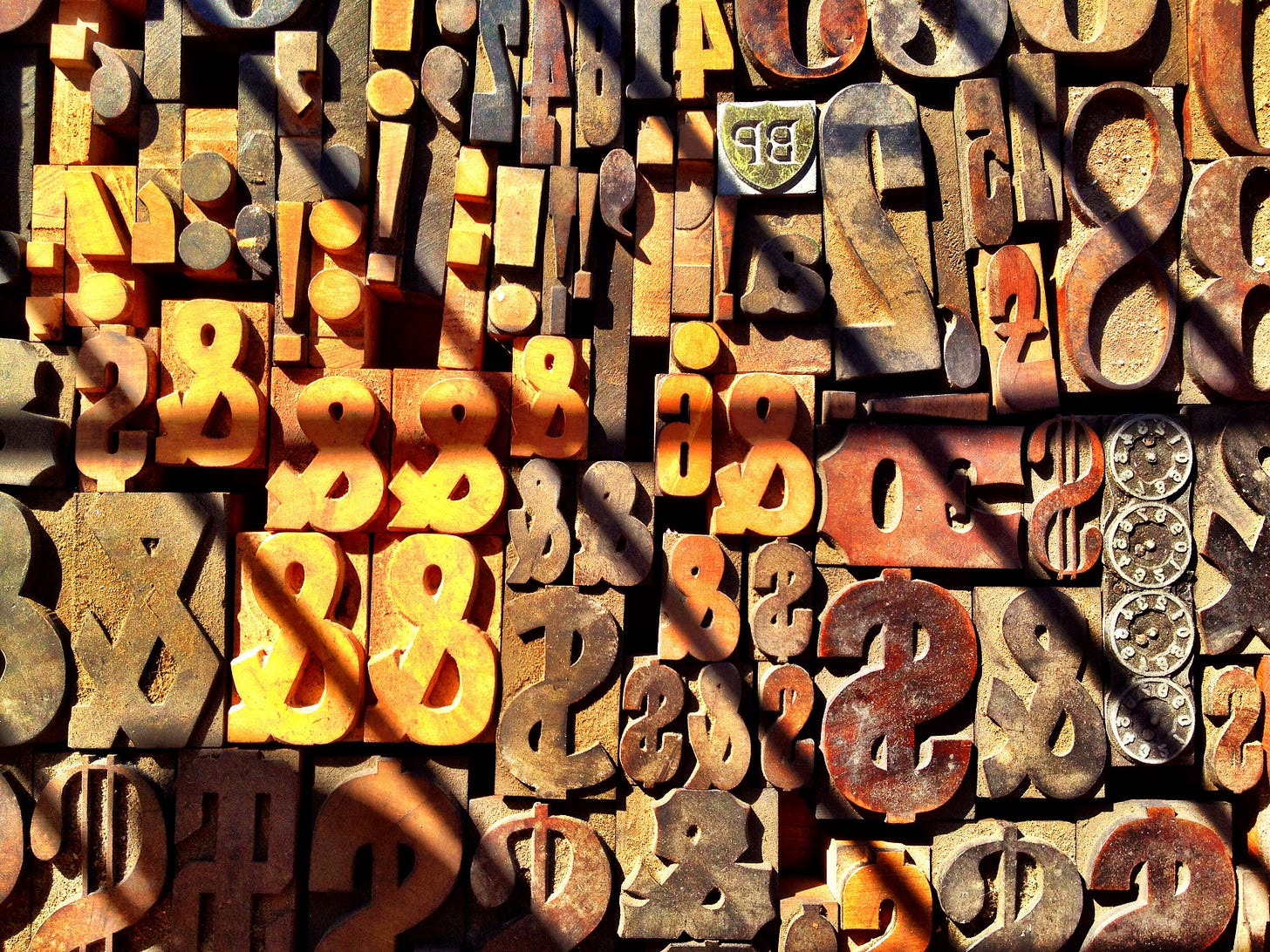Bookish Diversions: Drama with the Comma
Punctuation Past and Present, Finding New Books, Realizing You’ll Never Read Them All, More
¶ Drama with the comma. We’ve already covered the history of the much-maligned semicolon. What about the rest of those glyphs, marks, ticks, and signs? “Punctuation, like any other cultural production, has a tumultuous history full of public good and personal interest.”
¶ What about the mark heading these entries, ¶? It’s called a pilcrow. Keith Houston can tell you all about it. “The pilcrow is not just some typographic curiosity,” he says, “but a living, breathing character with its roots in the earliest days of punctuation. Born in ancient Rome, refined in medieval scriptoria, appropriated by England’s most famous modern typographer and finally rehabilitated by the personal computer, the story of the pilcrow is intertwined with the evolution of modern writing.”
¶ Punctuation evolves. And like a dinosaur in Jurassic Park, it’s not done yet. While the printing press helped standardize marks from the classical and medieval past, punctuation still mutates—sometimes rapidly. The way many people use acronyms like “lol” might, for instance, serve as punctuation today. Same with the use of emojis. When I’m being wry or sarcastic in text messages, I find it natural to deploy emoji—such as :) or 🙃. It’s trickier in more formal writing because you’re counting on the reader getting the point with subtler cues. Because they’re so easily deployed and cover so many bases, emojis now show up everywhere. At some point, they’ll be all over books; for instance, I don’t know how you avoid them in modern epistolary novels.
¶ The problem is evolution is uneven. Emojis can, for instance, come off as relatable in some contexts but can diminish your reputation in others. That goes for all sorts of punctuation uses. What are you supposed to do? Here’s some simple guidance. There are always exceptions, but it helps to know when you know when you’re making one.
¶ Poetry has its own playbook when it comes to punctuation, here’s how to read and deploy it in verse.
¶ Need help finding a new book? There’s an app for that. Actually a few.
¶ Plan to travel with a book in arm this summer? Here’s a list of books appropriate for all fifty America states.
¶ Too much to know. Costica Bradatan on Umberto Eco’s relationship to libraries: “What the library tells you is not that there is that much to read, but that there are no limits as to how much there is to know. The essence of the library is its limitlessness. The more time you spend in it, the more you realize that no time could ever be enough; no matter how hard you strive, you will never know it all. The revelation of your finitude comes with embarrassing pain. And when you have realized that you cannot live without that pain, your perverse relationship with the library has reached its climax.”
¶ Which reminds me of this from Tsh Oxenreider.
¶ A new biography of humorist Art Buchwald. “He helped people keep their sanity and laugh at things, laugh at the absurdity of politicians and what they were doing. . . . Buchwald himself once explained that the key to his humour was to ‘treat light subjects seriously and serious subjects lightly.’ No topic was too big or too small or too esoteric.”
Thanks for reading! I’m reviewing most of the books I read in 2022 and sharing other bookish diversions along the way. Get a free subscription and discover more remarkable reading.
If you’re already a subscriber, don’t keep it to yourself. Share it with someone who isn’t. Thanks!




